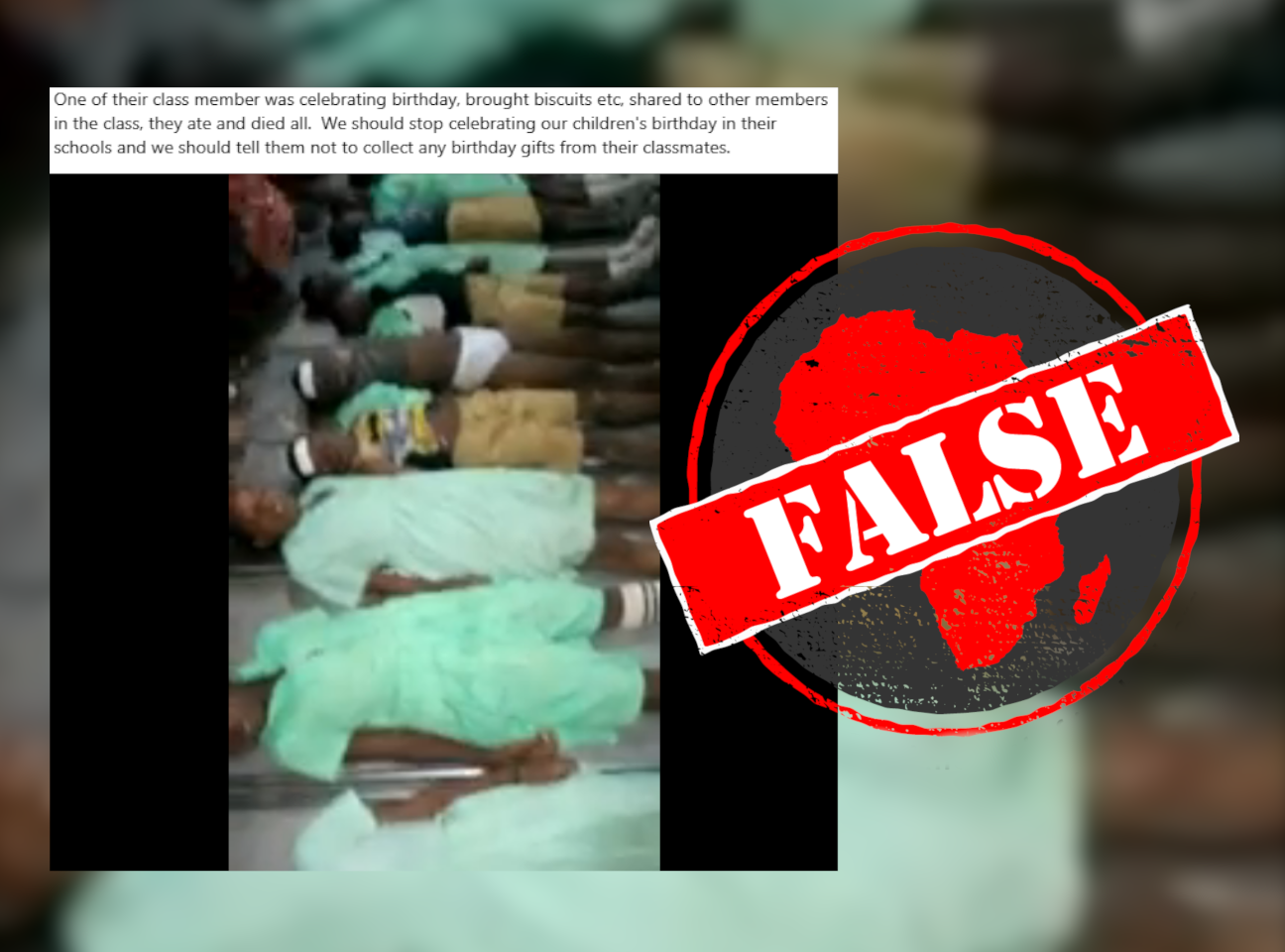IN SHORT: A viral video shows a disturbing scene – adults crying in anguish around the bodies of children laid out in a row. The incident is from Kenya, but took place in 2020. And the children died in a stampede, not from poison, as is being claimed in 2023.
An upsetting video posted on Facebook in Kenya on 13 March 2023 appears to show the bodies of children, dressed in light green and brown uniforms, laid out in a row on the floor. People standing around the bodies are crying and wailing.
The video has been posted with the claim that the children died after eating birthday party snacks.
Text at the top of the screen in the video reads: “One of the class members was celebrating birthday, brought biscuits etc, shared to classmates in the class, they ate and died all. We should stop celebrating our children's birthday in the schools and we should tell our kids not to collect any birthday gifts from their classmates.”
We found the video with the same caption posted on Facebook in Nigeria and Ghana, in 2020 and 2021, including here, here, here, here, here, here, here and here.
But how did these children die? We checked.

Video of aftermath of stampede in Kenya
A reverse image search of a screenshot from the video reveals the video was debunked by different fact-checking organisations, including Africa Check, in 2020 and 2021. It was then being falsely claimed that the children had died from mandatory Covid-19 vaccines.
We found then that the video was filmed in Kenya, but it shows children who died during a stampede at a primary school in Kakamega county in western Kenya on 3 February 2020. At least 14 children died in the incident.
This was reported by both local and international media outlets.
Photos from the scene and hospital showed students wearing the same light green uniforms as in the video. Videos published after the incident also show the same.
The claim that these children died from eating poisoned food is false.
Republish our content for free
For publishers: what to do if your post is rated false
A fact-checker has rated your Facebook or Instagram post as “false”, “altered”, “partly false” or “missing context”. This could have serious consequences. What do you do?
Click on our guide for the steps you should follow.
Publishers guideAfrica Check teams up with Facebook
Africa Check is a partner in Meta's third-party fact-checking programme to help stop the spread of false information on social media.
The content we rate as “false” will be downgraded on Facebook and Instagram. This means fewer people will see it.
You can also help identify false information on Facebook. This guide explains how.



Add new comment